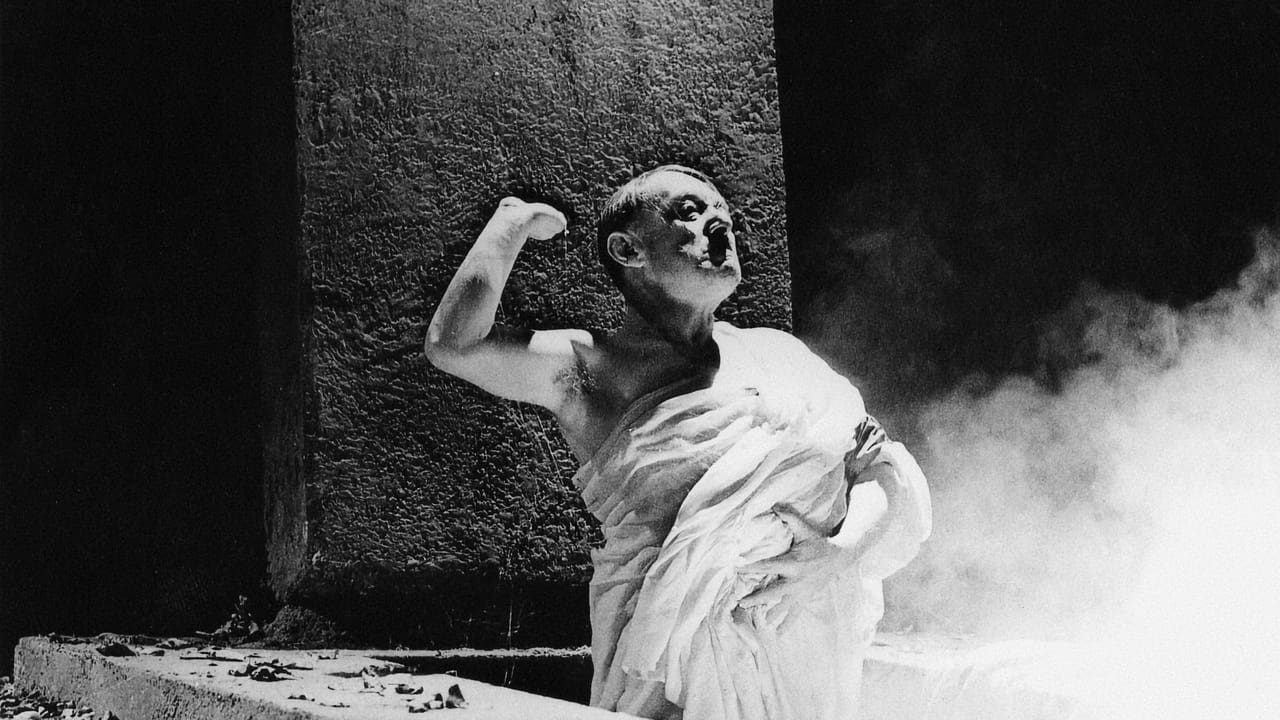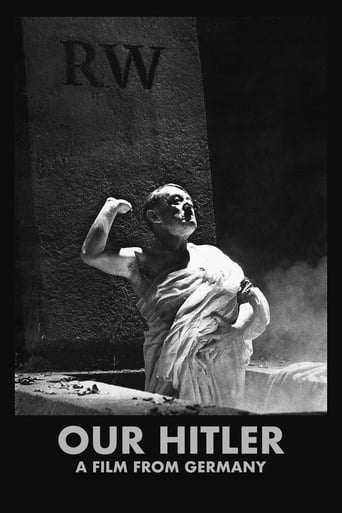

if their story seems completely bonkers, almost like a feverish work of fiction, you ain't heard nothing yet.
... View MoreAfter playing with our expectations, this turns out to be a very different sort of film.
... View MoreIt’s not bad or unwatchable but despite the amplitude of the spectacle, the end result is underwhelming.
... View MoreThe film's masterful storytelling did its job. The message was clear. No need to overdo.
... View MoreI saw this film in the 1970's in Madrid Filmoteca Nacional when i was a student. I have seen it again now, in August 2013. The film was then a novelty in its structure and ways of communicating things, I mean what in art theory is called the "form". But I think that after all these years, it is time to discuss the "content" of the film. Indeed, the film is full of fuzzy situations, texts read while another voice talks in the background, and so on. The film is divided into four parts, each 90-120'. The two first parts have several good ideas, as to display the sound of a real Hitler speech dealing about the greatness of Germany, while he is working painstakingly painting a wall. Another good idea is to show an actor acting as the servant of Hitler and telling his everyday life, or another one representing the private film projectionist of Hitler, who tells his preferences. But the two last parts of the film are long monologues, lists of arguments in favor of the Nazis. When you have these arguments presented in short passages, and as deliberately cynical utterances, it is OK. But when the arguments go on during two or three hours, then it is too much, and one starts to be suspicious about the author. He reaches the top of what can be bearable for me when, near the end of the film, and shortly after having mentioned the Hiroshima and Nagasaki bombs, a puppet representing Hitler asks: "What have you done with the World after me?". And one of the last sentences shown in the screen is "After the journey into the World, who is nearer to God than the guilty?". I am sorry, but what I passed over when I was young, is unbearable for me, and makes the author openly suspicious.
... View MoreHans-Jürgen Syberberg's mammoth meditation of Hitler and the German people who brought him to power is something that is only possible to describe as a physical entity.One can not truly explain what effect that it will have on the viewer. Its a four part film who's total running time is close to seven hours Total almost anti-cinematic with static sets, actors playing multiple roles, puppets, music, audio and video of the 1930's and 40's, narration and a dream logic that makes this more film as immersion tank rather than as narrative film. Its the sort of thing that one can not hope to grasp in a single viewing simple because there is too much to grasp and because things don't connect until you've gotten all the way to the end. (As the Movie Habit website said: "...much like a going to a Wagnerian opera. It's long, loud, and at any given moment it seems not to know where it's going. But when you get to the end, you know you've been someplace special.") Its a film that is clearly a work of art both pretentious and glorious. Actually this is a film that is all things at once good and bad, riveting and sleep inducing, masterful and amateurish. It is a film that is unlike any other that I've ever seen, not only in style but in effect, I was both bored by the film and utterly captivated.It is nothing so much as a head trip of the highest order. This is not a film of facts but of ideas.. Its an examination of what brought Hitler to power, could the national view of a classically romantic Germany have been the cause? At the same time what does all of this say about ourselves? 30 years on with the change of American politics from a less then simple democracy into battles of cults of personality are we heading toward something similar with the idealized ways of seeing the world that our leaders ask us to believe blinding us to the road to ruin? Its something to consider.Is it a great film? yes, I think it is. I don't know how many people will have the endurance to get to the end of the film owing to its often static nature, and heady discussions, but for those who are daring it is a unique experience, once that will haunt you around the edges.I think the best way to describe the film is to answer the question how is it? Yes, yes it is. (Meaning however you think the film is thats what it is) It is a masterpiece since its constantly provoking a reaction
... View MoreSusan Sontag called this film "the most extraordinary film I've ever seen". This may seem like a hyperbolic statement, but after seeing this film, I see where Susan was coming from. This really is an extraordinary film, and I completely understand Sontag's adoration of it. This is a brilliant film, one that has had me thinking for days about it. I watched it over 2 nights, and there's so much in it and so much to take in that I'm planning on renting it again or perhaps purchasing it. Despite its 7 1/2 hour length, there isn't one dull moment in it. I only watched it over 2 nights because I had to go to sleep. If I had had the time to watch the whole thing in one sitting, I would have done so without thinking. I haven't felt this glued to the screen in I don't know how long.The film is absolutely mesmerizing. This film has been unavailable for many, many years, and this is the first time it's been offered on home video. The director, Hans Jurgen Syberberg, had posted the film on his website, but watching it on a TV or projected is the best way to see it. The film is operatic, theatrical, mind bending, sad, haunting, angry, depressing, and just about everything else you can think of. The 4th part is a little boring (the first 30 minutes of part four is one long monologue), but after this monologue is concluded, the film takes off again to a stunning conclusion. Never does the film feel padded. Like in Wagner's great operas (Wagner figures prominently here), a film like this needs to be long to tell its story, and that should be respected. The actors throughout the film give excellent performances, and the film is one of the most thought provoking films that I've seen in recent memory. This is a filmic masterpiece.
... View MoreEver try tuning in a far away A.M. station? From another country perhaps, or even in your own language? Well, that just about sums up what seeing this movie is like. Part lecture (especially the last quarter), part play, part performance art, part Howdy Doody, this film rises to your conscious level of thinking at times, only to slip away in the wash of images, radio transcriptions and "creative" presentation (i.e. - acting). Challenging on all levels at all times, the viewer cannot help but feel lost some times and playing catch-up at all times. Good film to see when stranded at home, on the couch, with a fever of one-hundred and three. The fever would definitely be a plus.
... View More